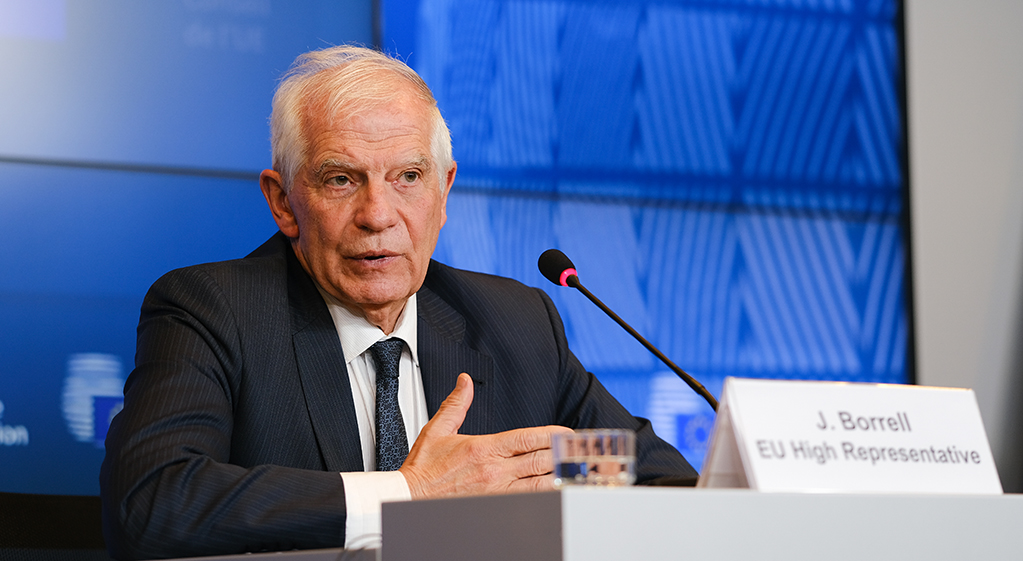At the European Union Foreign Affairs Council meeting, held on April 22 in Luxembourg, the member foreign ministers also discussed the current situation in Georgia. The conversation touched on the Russian Law that the ruling Georgian Dream intends to adopt.
News
The EU High Representative for Foreign Policy and Security, Josep Borrell, noted that the ministers expressed concern.
“There was a commitment by the Georgian government to withdraw this law – this project of law – and not to present it again [to the Parliament]. This has not been fulfilled. Commissioner [Olivér] Várhelyi and myself, we issued a statement last week, stressing that this law is incompatible with the European Union’s values. I repeat: it is incompatible with the European Union’s values. The [European] Commission will have to present an oral report on this development, but we are very much concerned about the fact that this law has been presented again to the Parliament,” Borrell said.
Rikard Jozwiak, the editor-in-chief of Radio Liberty's European Bureau, reported that there was a call for the Council to send EU ministers to Georgia or to invite the Georgian Foreign Affairs Minister to the Council’s next session.
On April 17, Georgian Dream adopted the Russian Law restricting independent media and civil society by 83 votes in the first reading. On the same day, a statement was issued by Josep Borrell and the Commissioner for Neighborhood Policy and Enlargement, Oliver Varhelyi, stating that the final adoption of the law will have a negative impact on Georgia's progress on the EU path. The law does not comply with the basic norms and values of the European Union, they said.
European Council President Charles Michel also responded to the Russian Law initiated by the Georgian Dream. He stated that the Georgian people had chosen the European path, leading to Georgia receiving candidate status. The draft law on "transparency of foreign influence" does not correspond to the European aspirations of the country. It distances Georgia from the European Union.
On April 12, German Chancellor Olaf Scholz, after a meeting with Georgian Prime Minister Irakli Kobakhidze, said that Germany, like the entire European Union, views this initiative of the Georgian Dream as "very critical" and expressed hope that the parliament will not adopt the law.
The Russian law contradicts the 1st and 9th recommendations defined by the European Commission for Georgia. These recommendations state that, to open accession negotiations, the authorities must ensure the free functioning of civil society in the country and fight disinformation against the European Union and its values.
The ruling party supported the Russian law in the first reading in March last year, but people's protests forced its rejection. The party leaders promised to recall it "unconditionally, without any reservations." However, a year later, in early April, the Russian law was reintroduced. Its text remained the same, with only the term "agent of foreign influence" being replaced by "organization carrying out the interests of a foreign power."
Georgian Dream intends to adopt the Russian law before the end of the current spring session of Parliament. President Salome Zourabichvili also opposes the law, stating that she will veto it.















